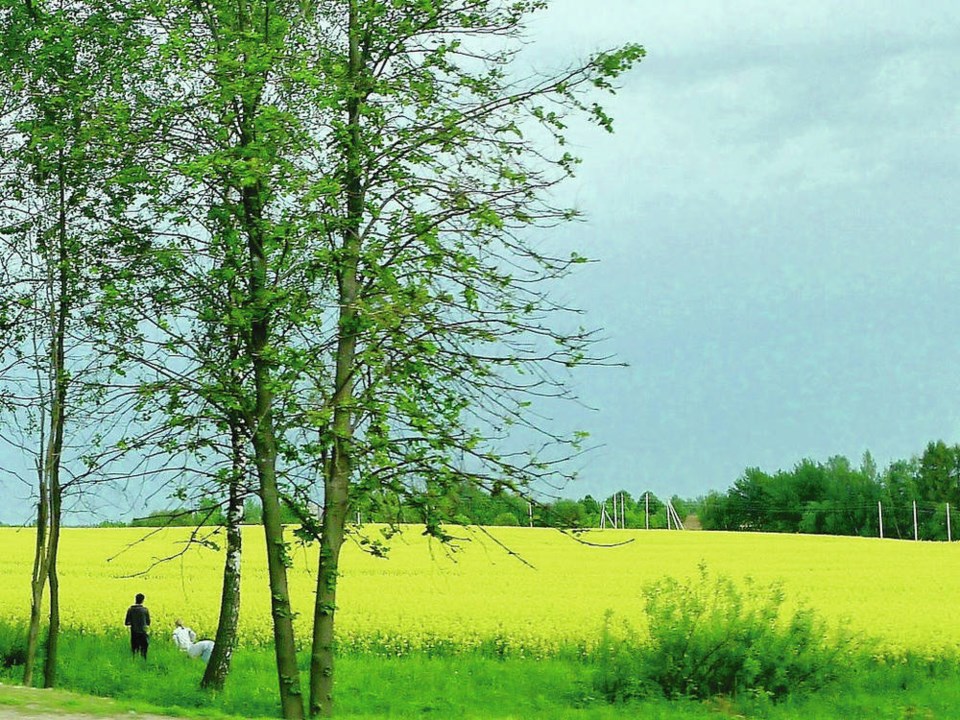Some time ago, when I was young and brave, I ventured into the very secretive closed Communist country of Belarus, a green and boggy country wedged between Poland and Russia.
I had a connection, a woman from Minsk who had visited Canada accompanying a group of children who had been exposed to radiation from the Chernobyl nuclear power plant.
The only other people on the German plane were several shady-looking KGB fellows and a plump perspiring man selling Bibles. On arrival at Minsk airport, I was escorted into a little dim plywood room, lit with one bare light bulb hanging from a wire, where a skinny, young, pale soldier with bad skin and wearing a short, thick, blue, woollen coat, adorned with one red star on its breast pocket, asked to see my passport.
He read it carefully and then his face brightened, showing a few gold teeth, and he asked me one question: “You know famous hockey player Wayne Gretzky?”
I said I did and he let me go. I gave him a box of Purdys chocolates, a bottle of shampoo and some cash. I walked out into the thick June humid haze, and Nonna was waiting to pick me up.
Her husband drove a dirty little car in which the pavement could be seen through the passenger side’s floor as we whizzed into Minsk, a grey, dingy city that looked as if it needed a good bath (I put my legs on the dash).
Greasy, sooty, yellow-and-red trolley buses, the only slits of colour, rocked clumsily along the wide, gritty streets lined with lilacs just about to bloom as numerous concrete flats, like grey smudges, loomed in the murky air.
But the following day, the husband took me to the beautiful green countryside, where we stopped in a country village and picked up his friend, a large, jovial man with a lot of curly hair and a wide-open face, who carried a bashed-up briefcase and a huge jar of pickled tomatoes under one arm.
They chatted with great animation as we drove farther and farther on damp and bumpy dirt lanes through lush meadows and woodland. At last, we stopped in a little birch grove, where there was a table made from stumps and a slab of wood.
From the briefcase, with great enthusiasm, came black bread, sardines, an onion, and a large bottle containing a brown liquid. The husband produced a white tablecloth and the big, happy man poured the refreshment into little grubby glasses with his thick hands. “Moonshine from his still,” whispered Nonna. “They want you to drink with them.” And I did.
We drank to friendship, health and hockey. The next thing I remember is waking up from a wonderful sleep amongst the birches surrounded by lily of the valley and a nightingale singing in the distance.
Well, you, too, can sample moonshine from right here on Vancouver Island and I’m sure it would be possible to take a snooze amongst the cedars or daisies after a tasting. I highly recommend The Distilleries of Vancouver Island: A Guided Tour of West Coast Craft and Artisan Spirits by Marianne Scott (2021, Touchwood Editions) to help you embark on this venture.
Even if you are not a drinking fan, the book is very interesting, as are the 21 distillers who reveal an abundance of intriguing information about the Island, the natural environment, their experiments in creating concoctions and the distillery business.
For example, trace amounts of gold in the water are credited for the unique “shocking smoothness” of a Goldstream vodka. Wild yeast collected from the West Coast forest provides a “floral favour” to the Ukee spirits. Krupnik is a Polish sweet liqueur made from local honey. A gin distiller on Hornby Island incorporates 14 ingredients, including cardamom seeds, and lists the health benefits of each. A product called Psychedelic Jellyfish Absinthe is made from wormwood in Tofino.
Cocktail recipes are included from these unique entrepreneurs. If I have the courage, I may try “Tip Toe Through the Tulips,” but I lack the nerve I once had in Belarus. There’s even a cocktail that includes instructions to “spank a sprig of rosemary.”
The introduction is informative and provides all sorts of historical facts, from the Romans distilling pine oil to make turpentine to the Arab nations concocting the first spirits.
The distillery process is explained — the copper stills and the various bases that can be used. (When I worked in China, I courageously drank a fire-burning beverage made from sorghum.)
The author wisely advises caution if you venture out on tastings, saying: “drink only enough to taste the spirit, a tiny sip – enough to wet your tongue. …”
And of course, it would be wise to have a designated driver, who, unlike my dear Belarusian friend, has a car with a floor.



